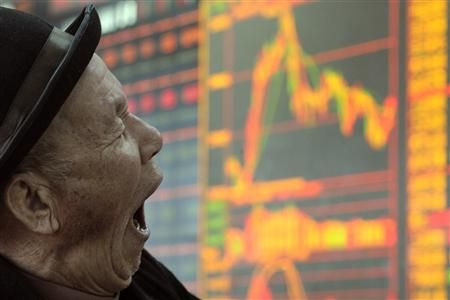Insomnia Costs Sleep-Deprived Employees 252 Million Productive Days a Year

A new study on insomnia and workplace productivity has again exposed the yawning gap between those who fall asleep easily and those who do not.
Nearly one in four American adults exhibit signs of insomnia, like waking up frequently or being unable to fall asleep, at least three times a month, according to the Harvard Medical school's latest American Insomnia Survey. Those people are costing their employers a staggering $67 billion a year as they lurch through the work day, or an average of 7.8 days per year.
Most insomniac workers do not miss work but show up tired and functioniong at a low capacity, a phenomenon known as presenteeism. For people who are consistently sleep deprived, that means becoming accustomed to underperforming.
It's an underappreciated problem, lead author Ronald Kessler said in a news release. Americans are not missing work because of insomnia. They are still going to their jobs but accomplishing less because they're tired. In an information-based economy, it's difficult to find a condition that has a greater effect on productivity.
The study, published in the journal Sleep, was part of the larger American Insomnia Survey. The survey and new study were funded, respectively, by Sanofi-Aventis (the maker of Ambien) and Merck, which is developing a new insomnia drug. Kessler acknowledged that the association raises some suspicion of bias, but he stood by his finding that insomnia is an underecognized problem, in part because it is not viewed as a genuine medical condition.
Worker screening programs and programs to teach workers good sleep hygiene may be very effective and could actually save employers money, Kessler told WebMD. These programs might help people feel a lot better and get more done on the job.
The study also revealed some interesting demographic differences in sleep. People with a college degree were more likely to suffer from insomnia than people who never finished high school; women had higher insomnia rates than men; and men older than 65 were the least likely to sleep poorly.
In all, 7,428 people across the U.S. participated in the survey, monitoring their sleep while listing how many days of work they missed and how well they perfomed when they were at work.
© Copyright IBTimes 2024. All rights reserved.





















